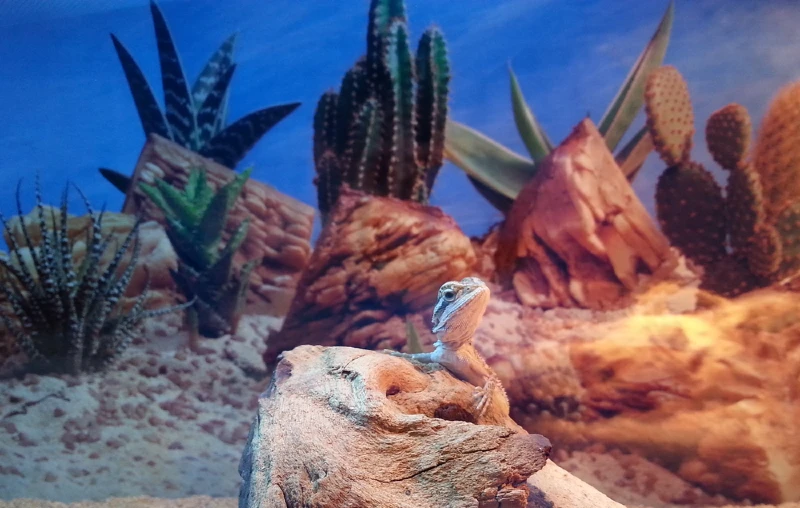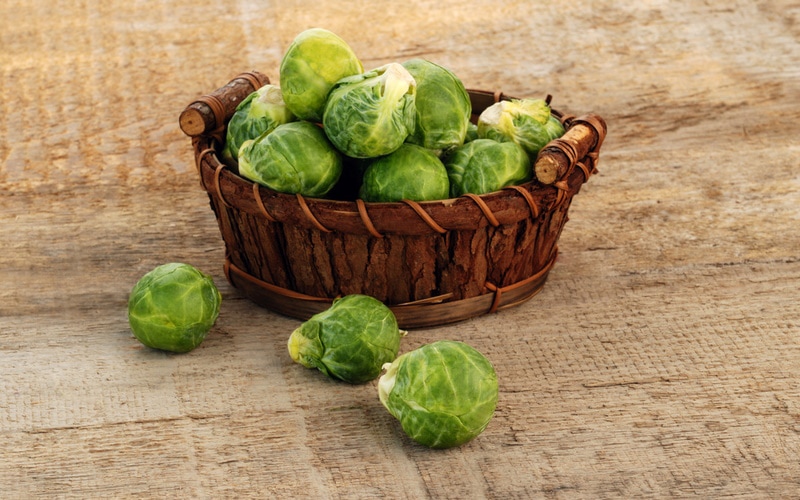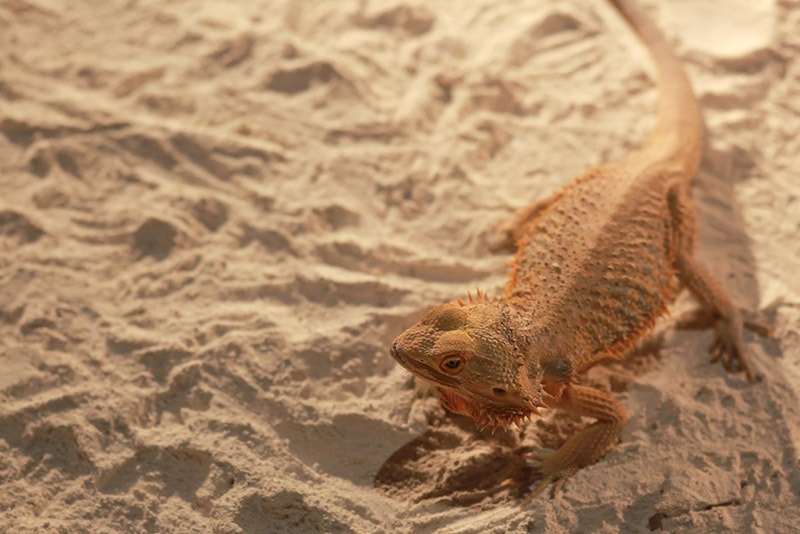Can Bearded Dragons Eat Rice? Vet-Approved Nutrition, Diet, & FAQ
Updated on
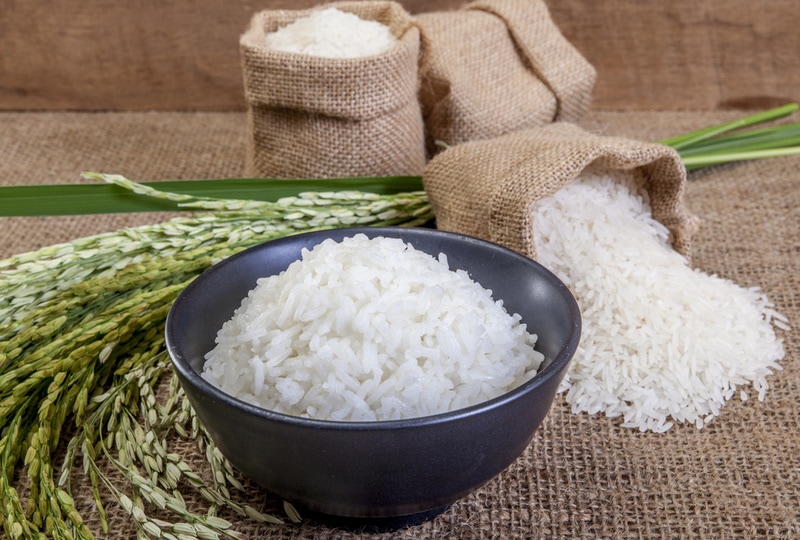
Bearded Dragons have slowly but surely become one of the favorites in the reptile community. They are great beginner reptiles because of their docile but still friendly personality, and they are not very hard to take care of. They are omnivores, meaning they can eat a variety of both plant and animal based foods. However, Beardies cannot eat rice, brown or white, nor should they eat any other grains at all.
Read on below for more information about the ideal diet for Beardies and why you should avoid giving them grains.
Nutritional Value of Rice
Rice is one of the oldest and most popular grains in the world. It is a staple food not only for humans but also for animals. There are many different types of rice, but they are generally divided into two groups: brown and white. White is the most common type of rice, even though not many people know that brown rice is actually healthier.
Nutritional Value of White Rice in 100 g:
- Water: 68.4 g
- Fat: 0.28 g
- Sodium: 1 mg
- Carbohydrates: 28.2 g
- Fiber: 0.4 g
- Sugar: 0.05 g
- Protein: 2.69 g
- Magnesium: 12 mg
- Calcium: 10 mg

Can Bearded Dragons Eat Rice?
Considering the Bearded Dragons’ very diverse diet, it may come as a surprise that they should refrain from eating grains, including rice. Their digestive tract doesn’t have enzymes to digest rice properly, so eating it can make them sick. It doesn’t matter if you give them boiled or raw rice, white or brown, the result will be the same.
But don’t worry if your Beardie finds a piece of rice on the floor and eats it, they will likely be fine, but eating a lot of rice can harm them, so keep that in mind.
Ideal Bearded Dragon Diet
A good diet combined with the proper housing setup is crucial for your Beardie’s health. Naturally, Bearded Dragons are omnivores, meaning they can feed on plants and animals. Their diet usually consists of insects, veggies, and fruit.
You must differentiate between feeding a baby Bearded Dragon and feeding an adult. Young Beardies need more proteins because of the development of their body, so the majority of their diet consists of insects. The insects you give to your baby Beardie shouldn’t be bigger than their mouth, and when you put the insects in their enclosure, return after 15 minutes and take the remaining insects out. You should feed them three times a day.
When feeding an adult Beardie, you must make their diet as diverse as possible. Give them live prey 3 or 4 times a week and the rest of their diet should be veggies and small amounts of fruit.
Bearded Dragons that live in captivity also need their food to be dusted with supplements. They generally need calcium and may need vitamin D3 and a multivitamin. Speak to your exotics vet for advice on the correct supplements for your pet.
Insects That are Safe for Bearded Dragons to Consume:
- Mealworms
- Superworms
- Crickets
- Dubia roaches
- Butterworms
- Silkworms
Veggies and Fruits That are Safe for Bearded Dragons to Consume:
- Watercress
- Collard greens
- Cilantro
- Broccoli
- Parsley
- Carrot
- Squash
- Cherries
- Grapes
- Melons
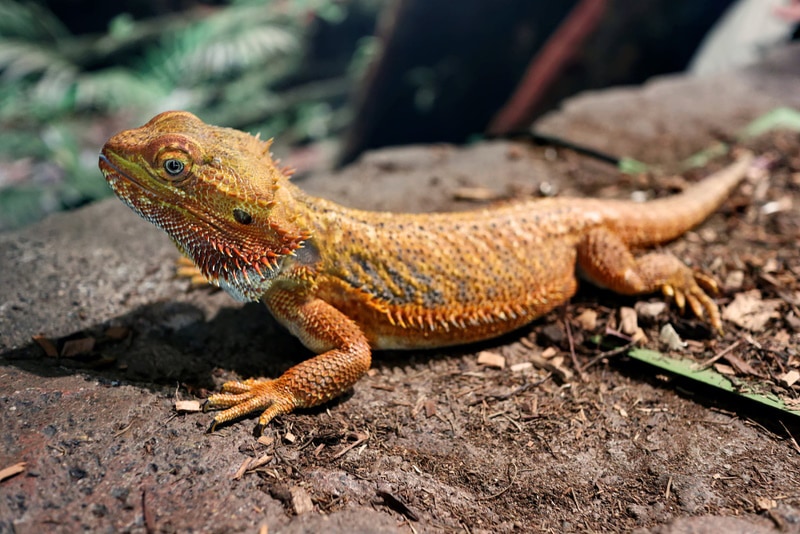
Bearded Dragon Enclosure
A suitable enclosure setup is crucial for your Bearded Dragon’s health. They need proper lighting and temperature of the enclosure. The enclosure should be around 104°F on the hot side and 77°F on the cool side. It would be best to use a heat lamp or ceramic heat emitter to generate heat. Regarding lighting, you should use UVB lighting—a UVB bulb or a tube, but we suggest you consult with your veterinarian beforehand to get the correct setup.
Conclusion
Even though Bearded Dragons can be relatively easy to care for and have a diverse diet, always research before introducing new food to their diet. We all know that rice is healthy for us to eat, but as we said, it can cause problems if you give it to your Bearded Dragon. While they should be fine if they’ve eaten a little by mistake, avoid giving rice of any kind to your Beardie.
Featured Image Credit: Jaded Art, Shutterstock


